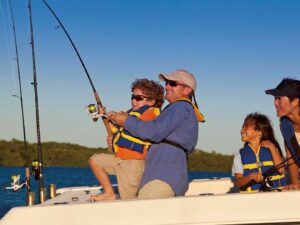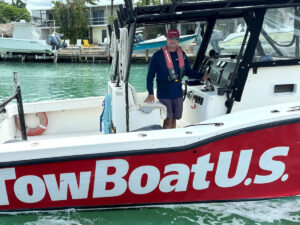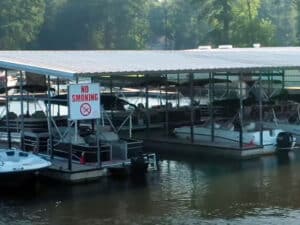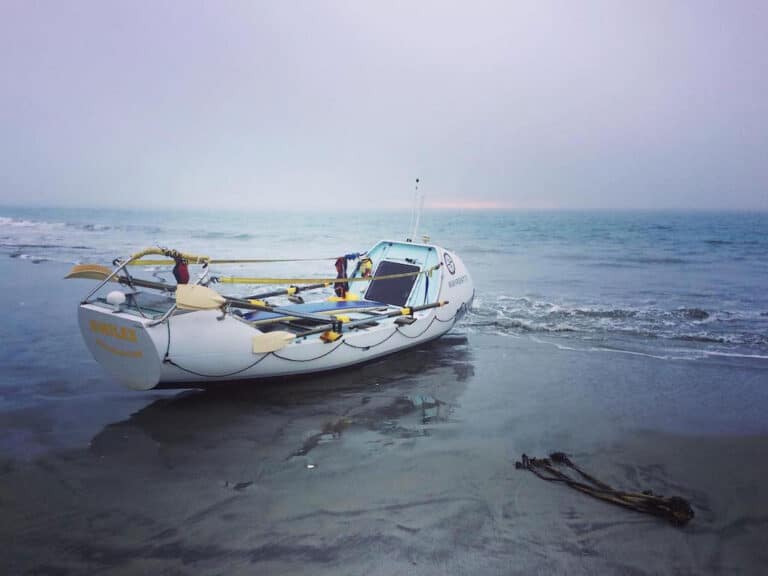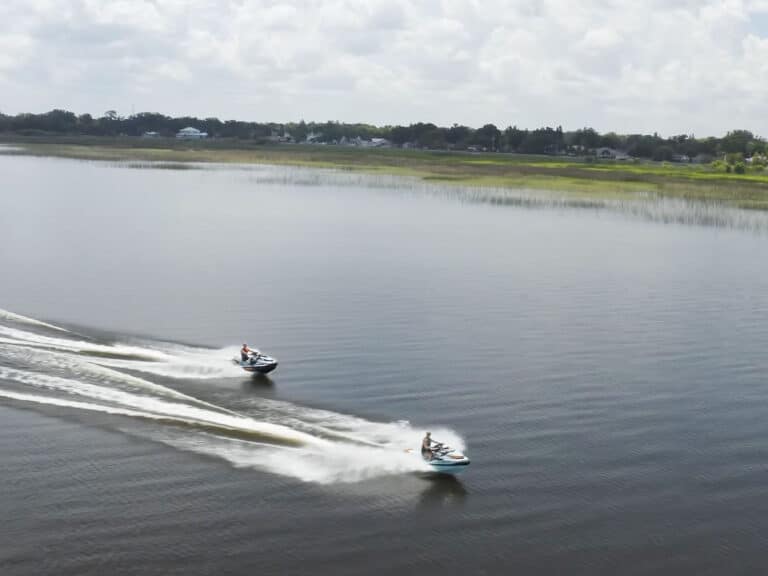When talk turns to boating accidents, many of us think of something like the final scene from The Perfect Storm, or perhaps the Skipper and Gilligan holding on for dear life as their tiny ship is tossed. After all, we’re conditioned by Hollywood and our own biology to fear stormy weather.

The reality is rarely so dramatic. In fact, more than three-quarters of boating accidents occur in fair weather and broad daylight, with good visibility, light winds and calm waters. And boaters in the United States are 10 times as likely to die on a lake, pond or bay than the high seas.
In other words, the biggest hazard to boaters isn’t adverse weather. It’s complacency.
According to data compiled by the U.S. Coast Guard, human error accounts for approximately 75 percent of all boating accidents, while environmental factors account for about 15 percent and equipment failure 10 percent.
Just ask Chris McMahon, who was fishing in calm water with two friends when a 31-foot Bayliner Trophy came seemingly out of nowhere and slammed into their skiff. It was a beautiful clear day, but the operator of the Bayliner was sitting down at the helm and, according to some reports, looking at his cell phone. He never saw McMahon and his companions in their 20-foot Weldcraft.
All three anglers leapt from the boat before impact, but only one was wearing a life jacket. “It was like going from the frying pan into the fire,” McMahon said of the 2018 incident. He was caught in the powerful outgoing tide and swept toward a forest of old pilings, an experience he says was every bit as scary as being run down by a large powerboat.
Before the accident, McMahon would typically only wear his life jacket in rough conditions or when he was planning to do something beyond the norm. “I have never been on the water since without a life jacket,” he said, “but going back to that day, the weather wasn’t rough. There weren’t a lot of other boats. It was just a nice day to be on the water.”
Fortunately no one was seriously injured in the accident, but that’s not always the case. According to the most-recent data released by the U.S. Coast Guard, there were 4,168 boating accidents in the U.S. in 2019, including 613 deaths. Nearly 80 percent of those deaths involved drowning, and in 86 percent of drowning accidents the victim was not wearing a life jacket.

“Wearing a life jacket is the single-most important thing you can do to save your life or the life of someone you care about,” said Capt. Scott Johnson, chief of the Office of Auxiliary and Boating Safety at Coast Guard Headquarters. Johnson cited a heart-wrenching case in which an 18-year-old who was preparing to wakeboard fell overboard with a life jacket in his hand. He never resurfaced.
“When you need a life jacket, you need it on, not in your hand or stowed away out of reach on your boat,” Johnson said. “This tragedy was entirely preventable.”
The takeaway couldn’t be clearer. To ensure the safety of all aboard, everyone should wear a life jacket at all times—day and night, in fair weather and foul. Because as the saying goes, when you least expect it, expect it.
Other tips to guard against complacency:
Keep a Proper Lookout: At night or in poor visibility we’re naturally more alert, but it’s also important to maintain a good lookout when the weather is fine. For one thing, there’s usually much more boat traffic on those beautiful summer days.
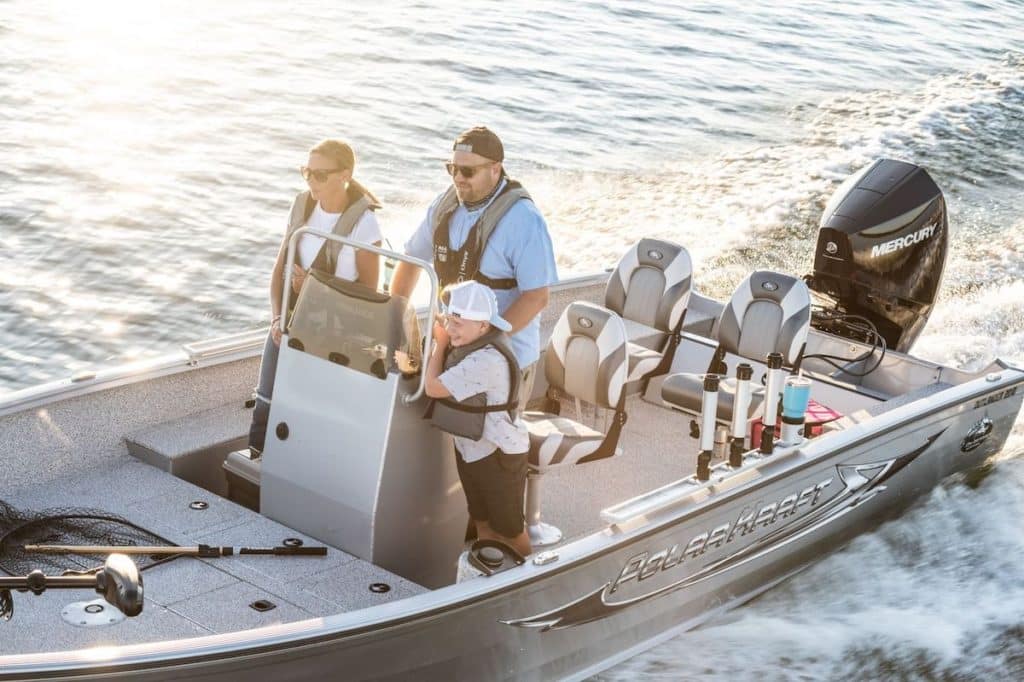
Avoid Alcohol and Drugs: Vessel operators and their passengers are more likely to be distracted or act recklessly when under the influence of alcohol or drugs. Also, the effects of alcohol are compounded by conditions boaters typically encounter on the water, which means that drink-for-drink, a boat operator may become impaired more quickly than an automobile driver.
Use Your Engine Cut-Off Switch: A runaway boat is no joke in any weather and experienced boaters know that engine cut-off switches save lives. A new federal law makes using an engine cut-off switch mandatory on personal watercraft and most small motorboats. Now it’s not just common sense—it’s the law of the land.
Keep An Eye on the Weather: Just because most boating accidents occur in good weather doesn’t mean you want to be out there when conditions turn bad. Check your local marine weather reports and keep an eye out for changing weather.
The U.S. Coast Guard is asking all boat owners and operators to help reduce fatalities, injuries, property damage, and associated healthcare costs related to recreational boating accidents by taking personal responsibility for their own safety and the safety of their passengers. Essential steps include: wearing a life jacket at all times and requiring passengers to do the same; never boating under the influence (BUI); successfully completing a boating safety course; and getting a Vessel Safety Check (VSC) annually from local U.S. Coast Guard Auxiliary, United States Power Squadrons®, or your state boating agency’s Vessel Examiners. The U.S. Coast Guard reminds all boaters to “Boat Responsibly!” For more tips on boating safety, visit www.uscgboating.org.

